Text

the phil ochs community on instagram is lacking so i'm hoping for some more enthusiasm over here! will be uploading some old and some recent drawings of him :)
132 notes
·
View notes
Text
I’m so in love with her it’s not even funny anymore



Bob Dylan was really onto something when he said “She looked like a religious icon, like somebody you’d sacrifice yourself for”
18 notes
·
View notes
Text
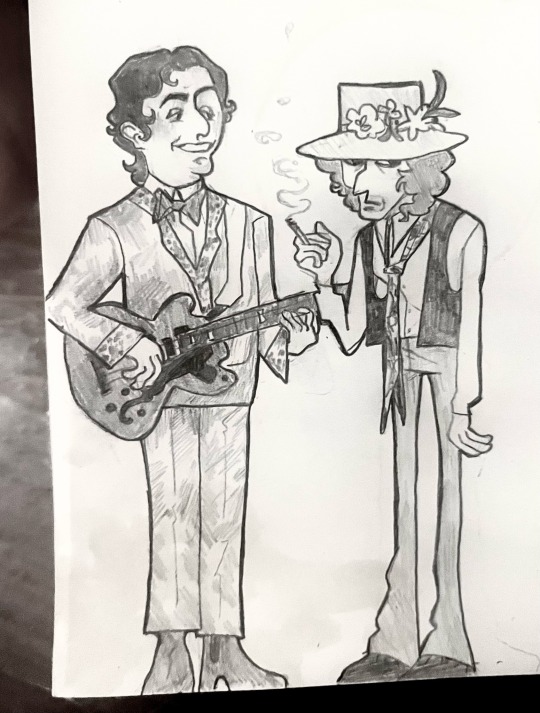
Greatest Hits Phil Ochs + Rolling Thunder Bob Dylan. I can draw whoever I want standing in a row!!!
82 notes
·
View notes
Text
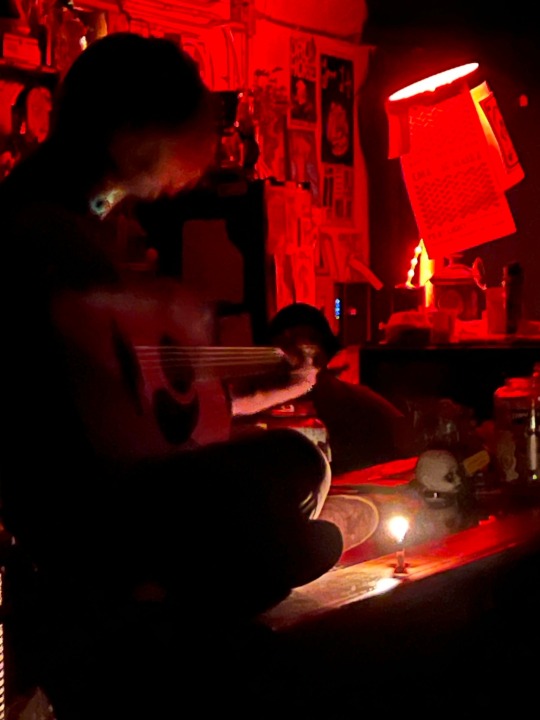

spoon (my best friend) @ pilot light last night
5 notes
·
View notes
Text
Pete Seeger speaks about the first amendment and a crooked trial
youtube
In case that seemed relevant to any one for some reason
#pete seeger#video#folk#folk music#history of folk#folk music history#60s#1960s#american folk revival#folk revival
18 notes
·
View notes
Text
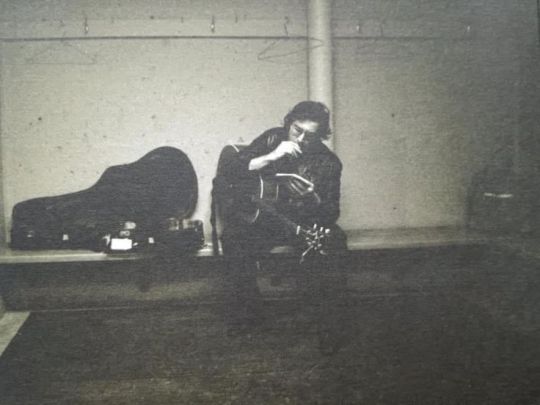
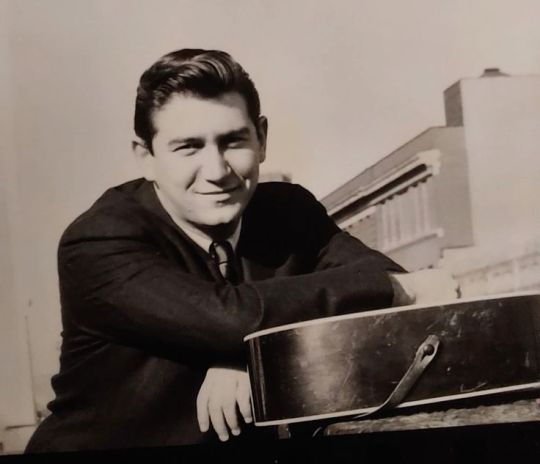
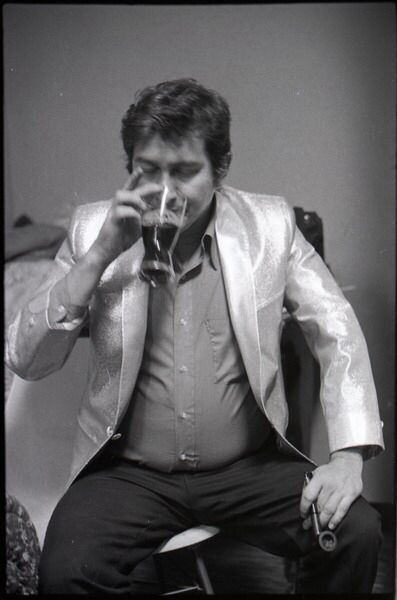
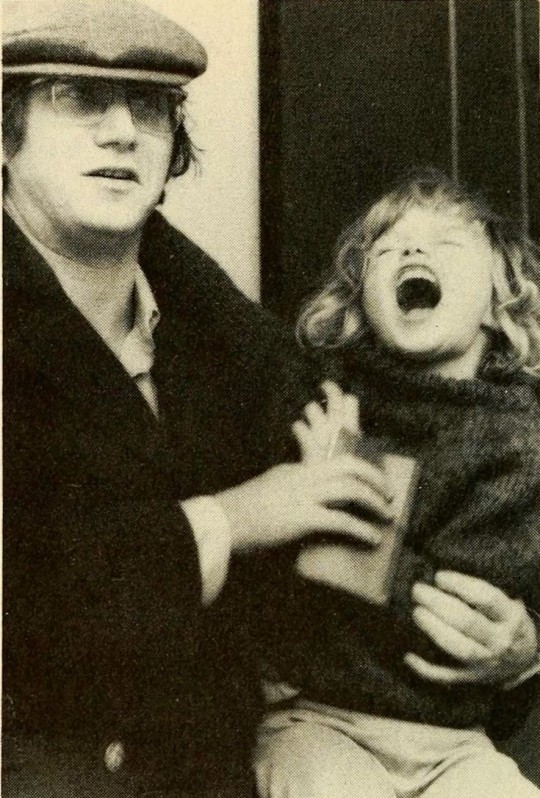
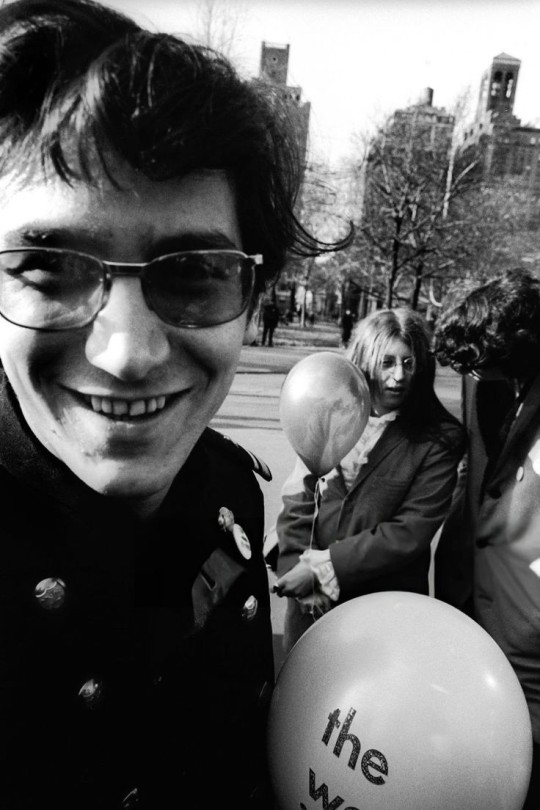
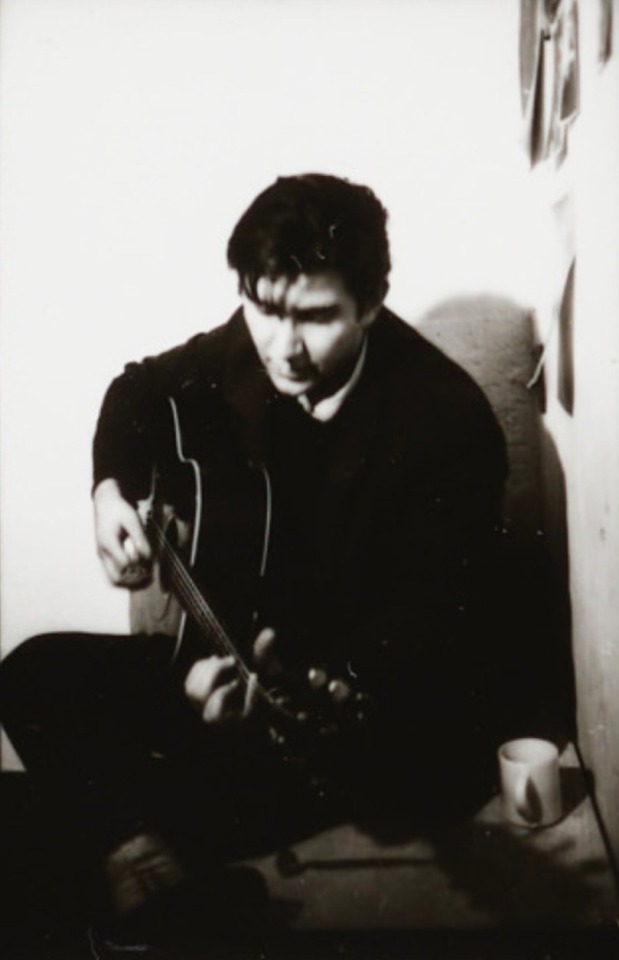
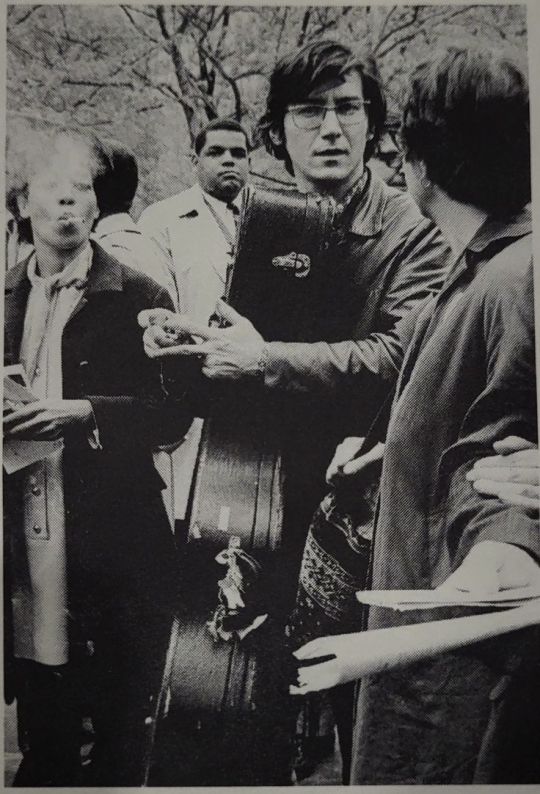
Some of my current favorites Phil Photos
61 notes
·
View notes
Text

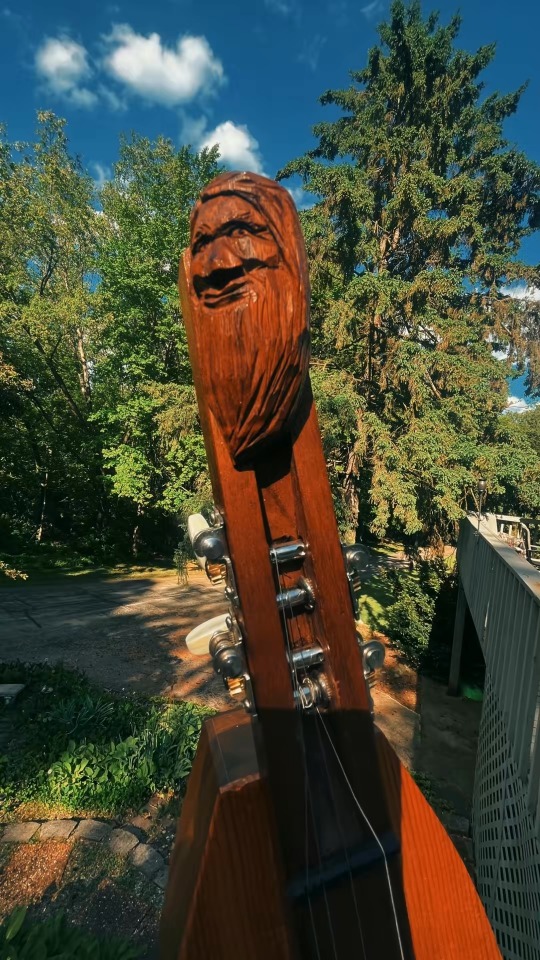
new hobby just dropped…. heheh
8 notes
·
View notes
Text

im obsessed with him rn.. never save me
165 notes
·
View notes
Text
Song of The Day (May day edition 🚩🌹🥖
youtube
"Solidarity Forever"
Joe Glazer, 1977
"Solidarity Forever" is an adaptation of the famous abolitionist song, "John Brown's Body" published in 1861 and created by Union Soldiers, based on the famous slave abolitionist John Brown.
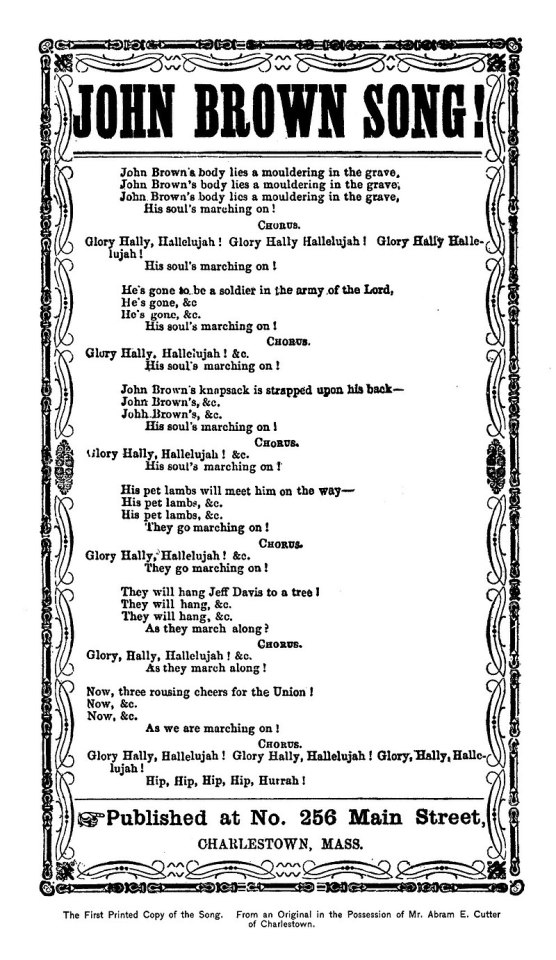
In 1915, Ralph Chaplin a poet, labor activist, and member of the International Workers of the World (IWW) wrote the words for "Solidarity Forever" to the tune of the abolitionist song. It was first published in the 9th Edition of the Little Red Songbook. The earliest recording was by the Almanac singers in 1941

A year before Ralph Chaplin died, he wrote: "Why I Wrote Solidarity Forever". I highly recommend reading the whole thing but I will be summarizing parts of it here.
Chaplin had first heard the term 'Solidarity' from founding IWW member Eugene Debs, and tried to instill the idea within the song
"What we were seeking was a united labor movement – 'all for one and one for all' – and it was this principle that I tried to embody in 'Solidarity Forever'. That is why, if for no other reason, that the story of 'Solidarity Fovever' may be worth the telling."
He began writing the song in 1913 in response to the Kanawha County miners' strike. The Strike resulted in 50 violent deaths if not more, and the arrests of hundreds of workers and labor organizers.

Labor Activist Mother Jones rallying Workers 1912, Wikimedia Commons
"Solidarity Forever" wouldn't be finished until January 15, 1915, two days before Lucy Parsons (another founding mother of the IWW) led a march in Chicago of over 15,000 people demanding relief from hunger and unemployment.
Since then, the song had become very popular among striking and exploited workers, especially miners and loggers
"It is true that 'Solidarity Forever' was written in Chicago, but it is also true that nobody ever heard of it until fifty thousand striking Puget Sound loggers bellered it out to a world that didn't care a hoot about the problems of vote-less and cruelly exploited 'timber beasts'. It is also true that the young author of 'Solidarity Forever' had been shaped by bitterly contested labor struggles, including a two-year strike against mine owners of Kanawha County, West Virginia, but that it took the sustained militancy of the grass-roots Western Federation of Miners, in the face of equally ferocious opposition to put the hefty punch into 'Solidarity Forever'that later on made it the theme song of the entirely latter-day labor movement."
It is now considered one of the IWW's most famous songs and has become wildly adopted by many types of unions and labor organizers, which Chaplin was critical of.
"Something also beyond the wildest stretch of my imagination was the possibility of Big Unionism competing with Big Business on fairly equal terms – and using identifcal promotional devices, including singing commercials – to keep business booming. That sort of 'solidarity', in my humble opinion is nothing to brag about, or sing about."
The Legacy of "Solidarity Forever cannot be understated. it has been translated into many languages, and sung by leftists everywhere. From its history as both an abolitionist song, a miners' song, a Chicago song, and a logger's song; it serves as a reminder that many people fought and died for basic rights and labor protections.
Many people these days wonder how Joe Hill could stop traffic on busy skid row street corners singing such hilarious songs as 'Pie In The Sky' and 'Mr. Block', or how he could refuse to be blindfolded when he faced the firing squad at the Utah State Prison, and himself give the order for the fatal volley that made his name the symbol of dedicated service to the economic underdog. Or why the striking loggers on the S.S. Verona chose to die singing 'Hold the Fort' and 'Solidarity Forever' in the rain of bullets from a mob of respectable businessmen on the docks at Everett, Washington. Or why young Wesley Everest, union organizer and World War I veteran, was lynched at midnight from 'Hangman's Bridge' in Centralia, Washington. Or why my good friend and fellow worker Frank Little was given the same treatment by hired anaconda gun-thugs for attempting to organize the mercilessly exploited hardrock miners at Butte, Montana. This could go on and on, every word of it is true, but only to be discounted as the resentment of an old codger mumbling through his beard.
And this is it. When the mask of humanity falls from Capital, the only thing we have left is Solidarity for our fellow workers. Solidarity Forever.
#joe glazer#pete seeger#the almanac singers#iww#wobblies#union#union history#anarchism#anarchist#socialist folk#socialist history#folk music#workers rights#labor rights#lucy parsons#struggle folk#international workers of the world#leftist#leftism#folk#folk revival#protest folk#I didn't talk very much about john brown's body because its going to be a separate post#communist#redneck#history#american history#Youtube#may day#international workers day
14 notes
·
View notes
Text
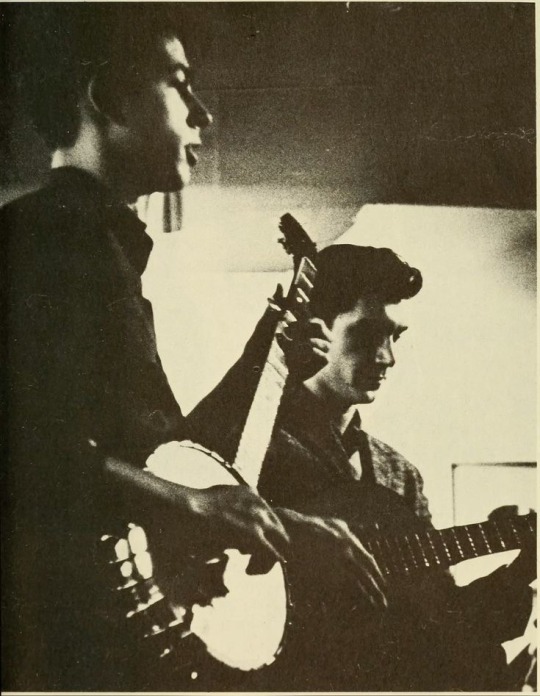
Jim Glover(left) and Phil Ochs(right) during their short-lived duo called The Sundowners
this is the only known photograph of The Sundowners, probably from 1962
58 notes
·
View notes
Text


Joan Baez holding a child backstage at the Greek Theatre during the 1964 Berkeley Folk Music Festival Jubilee Concert
532 notes
·
View notes
Text

bob dylan (with his children jakob, jesse, and sam dylan) in a truck, with an unknown kid standing in front, early 1970s
81 notes
·
View notes
Text
Folk Song Friday!
youtube
In My Time of Dying Josh White, 1944-46
"In My Time of Dying" is a traditional gospel song that was first written and recorded by Blind Willie Johnson in 1927 as "Jesus Make Up My Dying Bed" Later, in 1933, it was recorded by Josh White when he was just 18, also as "Jesus Gonna Make Up My Dying Bed" He later re-recorded the song sometime between 1944-1946. This song, in large part due to Josh White's covers in the 30s and especially the 40s, helped popularize the traditional gospel song. It was his recording that directly inspired Led Zeppelin's version, and likely Bob Dylan's as well.
#josh white#blind willie johnson#led zeppelin#bob dylan#traditional blues#blues history#blues artists#black gospel#gospel#folk#folk revival#folk music#american folk revival#american folk#black folk#black music#20s#40s#1920s#1940s#folk friday#Youtube
12 notes
·
View notes
Text
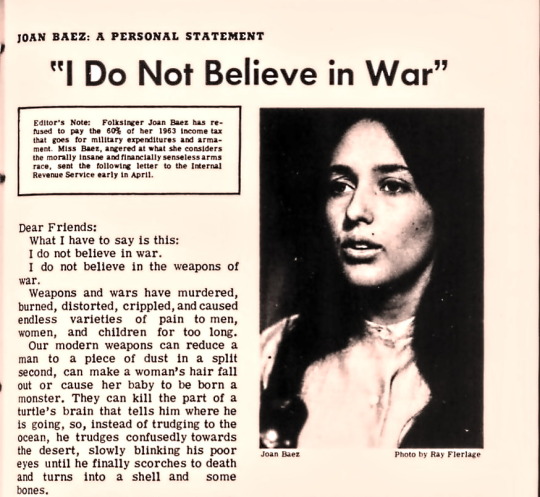
Sing Out! Magazine, vol 14, iss 3, 1964
"I Do Not Believe in War I Do Not Believe in The Weapons of War"
#joan baez#photos#folk#folk revival#folk music#american folk revival#american folk#60s#women of folk#protest folk#anti vietnam war#anti war folk#anti war in vietnam#1960s music#1960s#sing out! magazine
162 notes
·
View notes
Text

Sing Out! Magazine, vol 11, no 1, 1961
Greetings from the USSR
#folk#folk revival#folk music#american folk revival#american folk#photos#60s#pete seeger#sing out! magazine#socialist folk#american folk music#msc
7 notes
·
View notes
Text

Phil Ochs in Concert CD booklet, photos taken c. 1967
344 notes
·
View notes